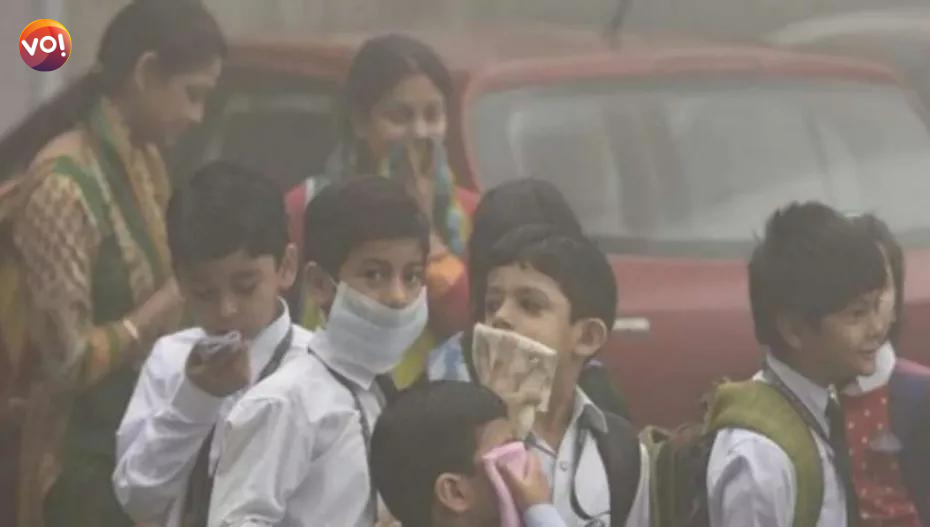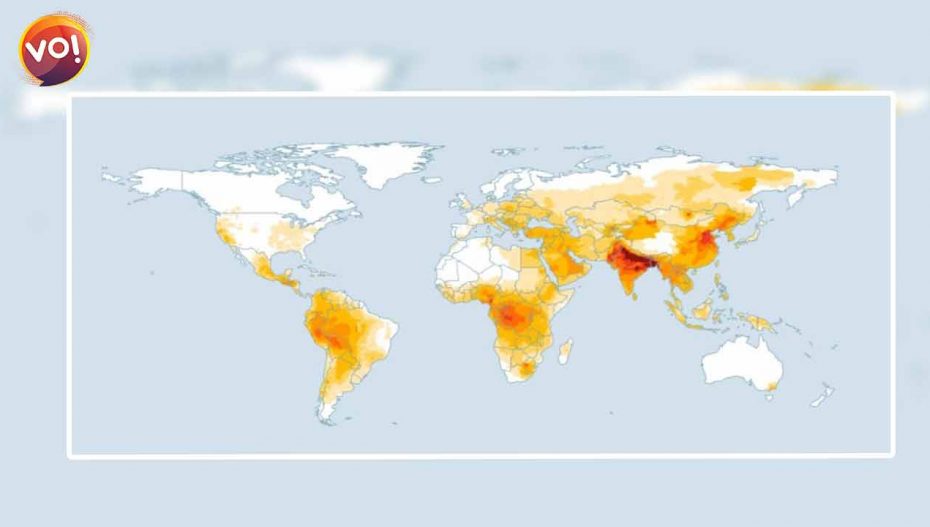AQLI Report: Map showing most polluted countries in dark shades
Globally, India is the second most polluted country preceded by Bangladesh, where life expectancy reduced by 6.9 years in 2020 due to poor air. Next comes Nepal (4.1 years), Pakistan (3.8 years) and the Democratic Republic of Congo (2.9 years).
The findings were made public in new report by Energy Policy Institute at the University of Chicago (EPIC), “Air Quality Life Index” (AQLI). The study converts air pollution concentrations into their impact on life expectancy. From this, the public and policymakers alike can determine the benefits of air pollution policies in perhaps the most important measure that exists: longer lives. It quantifies the causal relationship between long-term human exposure to air pollution and life expectancy.
For its fresh analysis, the AQLI team used air pollution data from 2020 when Covid-19-related restrictions were imposed globally.
India globally faces the highest health burden of air pollution due to its high particulate pollution concentrations and large population. The particulate pollution levels have increased from 53 micrograms per cubic metre in 2013 to 56 micrograms per cubic metre today—roughly 11 times higher than the WHO limit. AQLI Director Christa Hasenkopf said this shows that air pollution is a very stubborn problem which requires consistent and strong action.
Delhi was also the most polluted state with around 9.7 years of life expectancy lost on average as per AQLI’s analysis last year based on the old revised World Health Organisation (WHO) target of 10 micrograms per cubic metre for reducing the burden of disease. As per this year’s analysis, Uttar Pradesh, Bihar, Haryana and Tripura are among the top five polluted states, which stand to gain the most in life expectancy if the pollution levels are met.
About 44% of the world’s increase in pollution has come from India since 2013. In the Indo-Gangetic plains, 510 million residents, nearly 40% of India’s population, are on track to lose 7.6 years of life expectancy on average, if current pollution levels persist. Residents of Lucknow stand to lose 9.5 years of life expectancy if pollution levels persist.
South Asia bears the highest burden of air pollution. India, Pakistan, Bangladesh, and Nepal remain among the top five most polluted countries in the world. In each of these countries, the impact of air pollution on life expectancy is substantially higher than that of other large health threats.

The average resident of the four countries is exposed to particulate pollution levels that are 47% higher than at the turn of the century. If pollution levels in 2000 remained constant over time, the residents in these countries would be on track to lose 3.3 years of life expectancy. “It would be a global emergency if Martians came to Earth and sprayed a substance that caused the average person on the planet to lose more than two years of life expectancy. This is similar to the situation that prevails in many parts of the world, except we are spraying the substance, not some invaders from outer space,” said Milton Friedman Distinguished Service Professor in Economics Michael Greenstone, the AQLI’s creator along with his colleagues at the EPIC. “Fortunately, history teaches us that it does not need to be this way. In many places around the planet, like the United States, strong policies, supported by an equally strong willingness for change, have succeeded in reducing air pollution.”
China stands to lose 2.5 years of life expectancy but it has also gained two years due to the reduction in pollution levels since 2013. China’s pollution has been decreasing since the country began a “war against pollution” in 2014. This decline continued through 2020, with pollution levels down 39.6% compared to 2013, the analysis said.
The AQLI found that particulate air pollution takes 2.2 years off global average life expectancy, or a combined 17 billion life years. The impact on life expectancy is comparable to that of smoking, more than three times that of alcohol use and unsafe water, six times that of HIV/AIDS, and 89 times that of conflict and terrorism, the analysis said.
Also Read: A’bad Air Pollution Equivalent To Smoking 2.5 Cigarettes Daily











